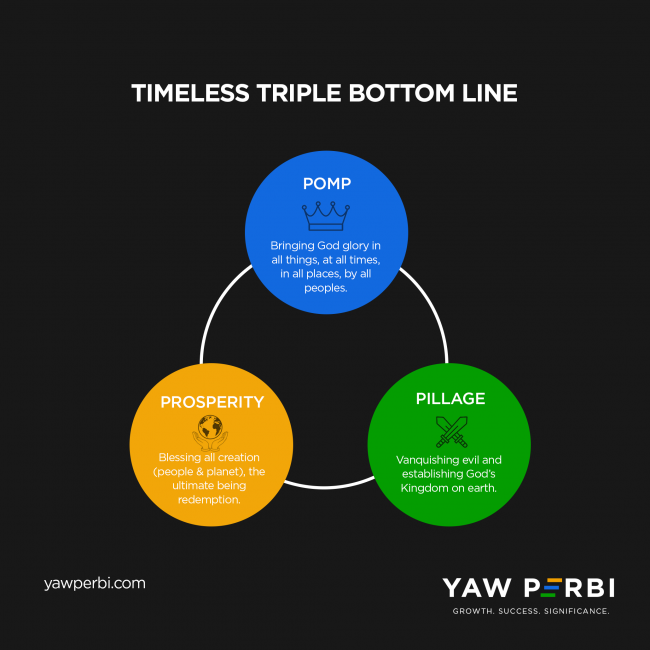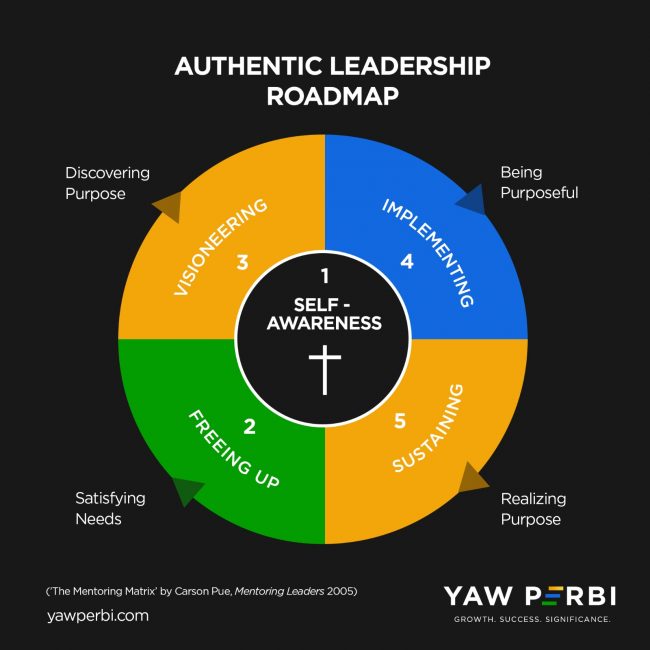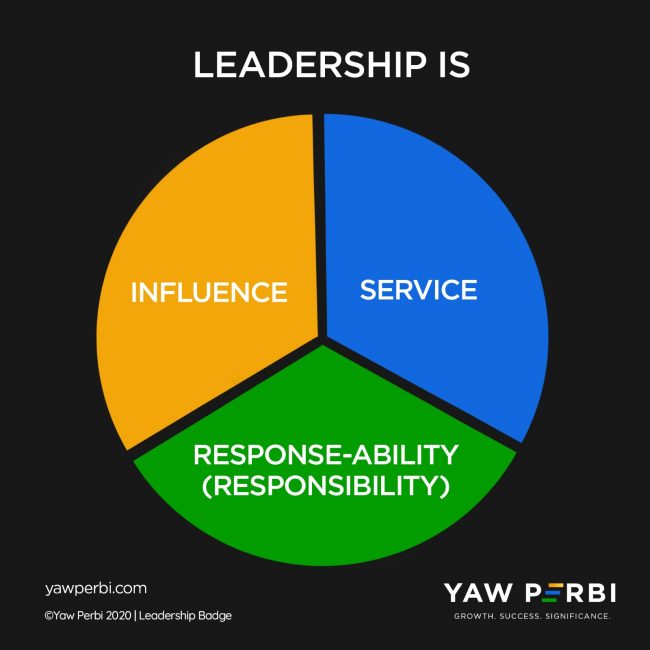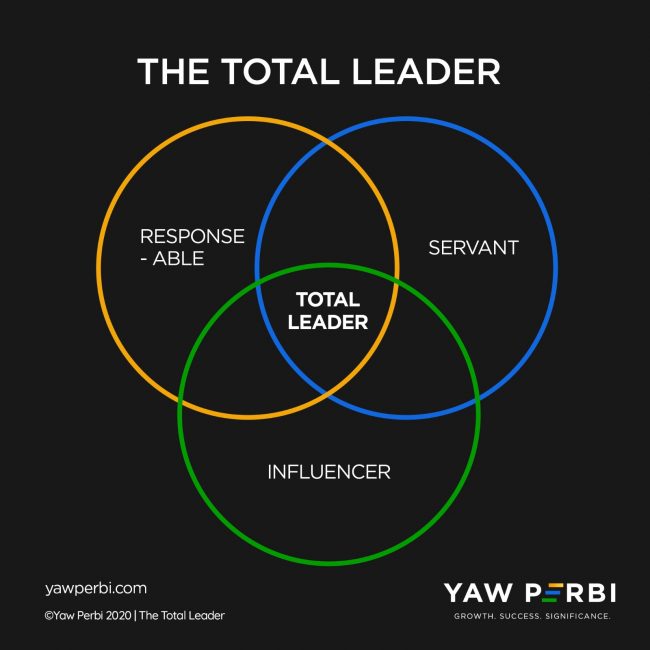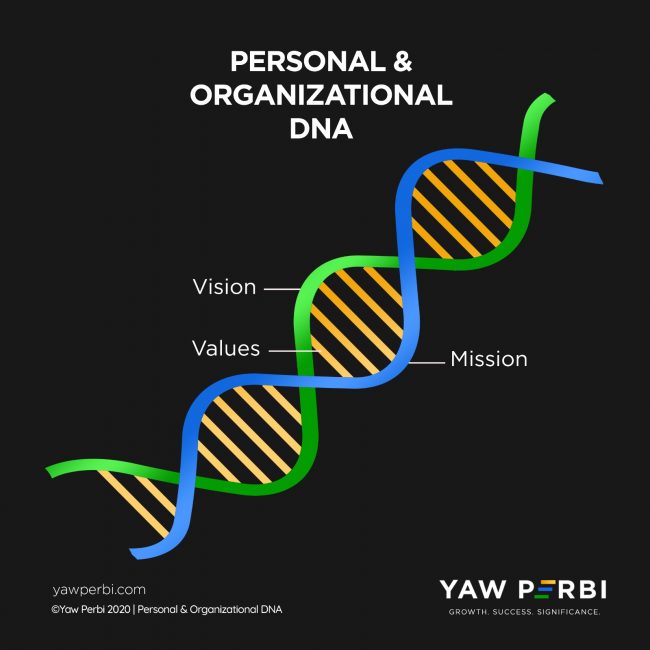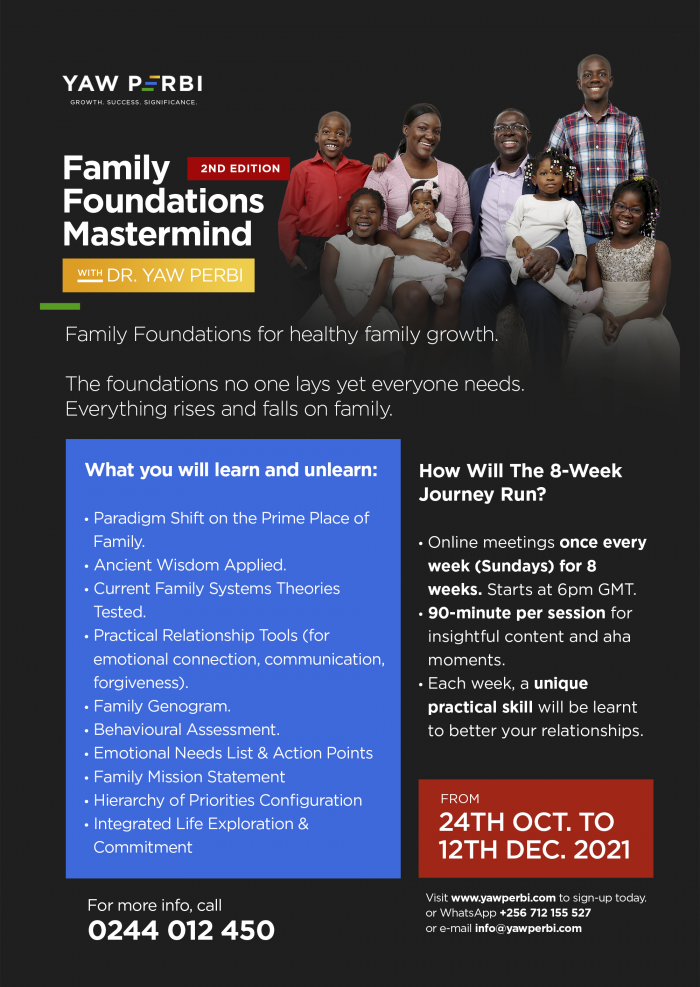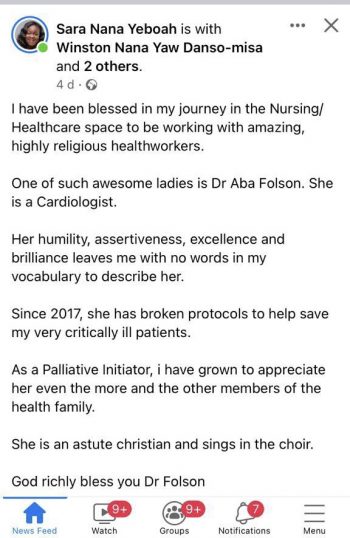
THE PRESENCE ~ Part 3 (of 3)
Do you know the story about the wealthy arts collector and his son? Eventually when both died the man willed all of his wealth—unbeknownst to the other wealthy art connoisseurs and museums who were eyeing his stuff—to whoever bought the ‘unimpressive’ but deeply precious painting of his son. Usually, this story is told in an evangelistic sense for people to consider Jesus Christ as their Saviour and Lord—“whoever takes the Son, gets it all”—yet this is the same Son who said, “But very truly I tell you, it is for your good that I am going away. Unless I go away, the Advocate [THE PRESENCE] will not come to you; but if I go, I will send him to you” (John 16:7). Friend, whoever takes the Spirit, THE PRESENCE, into 2022, gets it all.
THE PAINTING is like THE PRESENCE
Everything you need is in THE PRESENCE; just like every painting the connoisseurs wanted was in that one painting of the son. Moses knew, that everything he and the Israelites would ever need was in THE PRESENCE. And so when God said “I’m not going with you guys any longer,” Moses retorted without skipping a beat, “then we’re not going!”
1Then the Lord said to Moses, “Leave this place, you and the people you brought up out of Egypt, and go up to the land I promised on oath to Abraham, Isaac and Jacob, saying, ‘I will give it to your descendants.’ 2I will send an angel before you and drive out the Canaanites, Amorites, Hittites, Perizzites, Hivites and Jebusites. 3Go up to the land flowing with milk and honey. But I will not go with you, because you are a stiff-necked people and I might destroy you on the way.” (Exodus 3)
As I said in the beginning, many people wouldn’t mind such a deal at all, just like heaven without God! If getting to the Promised Land was guaranteed, with an angel to boot, what’s the problem if it’s ‘only that’ God isn’t coming along for the ride? At the various Watch Night/Cross Over services around the world, I dare say that for the majority of people as long as were assured of the promises of God, angelic guidance and protection, prosperity of what to eat and wear and spend (milk and honey) in 2022, who cares about THE PRESENCE?!
12Moses said to the Lord, “You have been telling me, ‘Lead these people,’ but you have not let me know whom you will send with me. You have said, ‘I know you by name and you have found favor with me.’ 13If you are pleased with me, teach me your ways so I may know you and continue to find favor with you. Remember that this nation is your people.” 14The Lord replied, “My Presence will go with you, and I will give you rest.”
15 Then Moses said to him, “If your Presence does not go with us, do not send us up from here. 16 How will anyone know that you are pleased with me and with your people unless you go with us? What else will distinguish me and your people from all the other people on the face of the earth?”
The company you need is in THE PRESENCE, favour is in THE PRESENCE, pleasure is in THE PRESENCE, rest is in THE PRESENCE, distinction is in THE PRESENCE. We’ve all been raised to think how sad it was that Moses never entered the Promised Land. Are you sure? What if I told you he did? What if the Promised Land is God Himself? I’ll leave you to wrestle with that for a bit.
SO WHAT? FOLLOW THE CLOUD
I hope I’ve been able to convince you that EVERYTHING you need for 2022 is in THE PRESENCE of the LORD; all you’ll EVER WANT is in THE PRESENCE. Do you then now have the faith to pray, “Dear God, all I need for the New Year is YOU! so All I want for New Year, is YOU!”
Remember, s(h)e who takes the Spirit, THE PRESENCE, gets everything! Lord, LEAD! LORD, your presence or nothing! Will you follow the crowd or the CLOUD? Using ‘CLOUD’ as an a acronym, here’s how to practicalize this message and maximize THE PRESENCE in 2022: Cultivate, (Be) Led, Obey, Unwind, Discern.
1. CULTIVATE— Cultivate THE PRESENCE
This year, learn to stop at set times (also spontaneously) during the dam, calm your spirit (breathe in and out deeply) and centre yourself by being conscious of your breathing and God’s presence, saying, for example (with breathing in), “Lord, “I breathe in your Spirit…” and as you exhale, “I breathe out my stress or anger.”
Incidentally, on the very 31st January, prior to traveling to preach this message in the evening, my wife and I were going to look at a piece of property and burst a tyre. She had to continue alone in an Uber. Initially I was getting upset, wondering whether this was an attack on 31st or whatever… Then the Spirit reminded me of this very message. I stopped, calmed down, centred myself, cultivating THE PRESENCE.
2. LED— Be Led by the PRESENCE
“For those who are led by the Spirit of God are children of God…” (Rom 8:14). Let the Lord lead in 2022. Listen & be led.
3. OBEY—Obey the promptings of THE PRESENCE
What more is there to say?
4. UNWIND—Relax, Lounge, Chill and build intimacy with God
Mark Thibodeaux describes four stages of praying, or relating to THE PRESENCE. By unwind I mean the fourth; not the first three.
o Talking at God—This is simply parroting prayers, whether recited ones like “Bless me, Lord, for what we’re about to receive we thank thee O Lord” or the kind of mindless speaking in tongues
o Talking to God—We become more comfortable finding our own words to speak to God, rather than readymade prayers but still “give me, give me, give me more, Lord.”
o Listening to God—This is when we begin to enjoy a two-way relationship with him.
o Being with God—A final stage is where “finally, we simply enjoy being in the presence of God—who loves us. This is far more important than any particular activity we might do with Him [or for Him]. His presence makes all of life fulfilling.”
5. DISCERN—Scripture says we should not be foolish and act thoughtlessly, but understand what the Lord wants us to do, understudy God’s moves and waves and will. Moses said, “show me your ways” as He asked for God’s presence and glory. My favourite definition of discernment is Ruth Haley Barton’s: “the capacity to recognize and respond to the presence and the activity of God—both in the ordinary moments and in the larger decisions of our lives.”
CONCLUSION
Let’s thank God for every time you experienced THE PRESENCE in 2021. Confess your eagerness to have stuff and success in 2022 but not necessarily HIM! Let’s pray for a life that follows the CLOUD in 2022. If you’re serious about THE PRESENCE, tell God, in the words of Don Moen’s classic:
If Your presence doesn’t go with us
Lord we don’t want to leave this place
Lord we need You near
As we go from here
To lead us by Your love and grace
May Your presence fill us every day
May Your Spirit lead the way
Lord to You we call
Let Your glory fall
And may Your presence go with us
If we have found favor in Your sight
Show us Your ways O Lord
Cause we want to know You
And live in Your light
For all of our days
Show us Your ways
We have our hopes
And we have our dreams
But we cannot go
Where You will not lead
Lord to You we call
Let Your glory fall
And may Your presence go with us
Rest assured, we have a guaranteed general, guide, guard, giver and glory for 2022, the “Captain of Israel’s Host,” THE PRESENCE.

THE PRESENCE ~ Part 2 (of 3)
17When Pharaoh let the people go, God did not lead them on the road through the Philistine country, though that was shorter. For God said, “If they face war, they might change their minds and return to Egypt.” 18So God led the people around by the desert road toward the Red Sea. The Israelites went up out of Egypt ready for battle. … 20After leaving Sukkoth they camped at Etham on the edge of the desert. 21By day the Lord went ahead of them in a pillar of cloud to guide them on their way and by night in a pillar of fire to give them light, so that they could travel by day or night. 22Neither the pillar of cloud by day nor the pillar of fire by night left its place in front of the people. (Exodus 13)
THE PRESENCE FROM EGYPT
God will not necessarily lead you through the shortest routes in 2022 but the best routes, according to His good, pleasing and perfect will. God was Israel’s captain as they exited Egypt to possess the Promised Land. A captain is a commanding officer of a ship, someone in command or a leader of a group (like a football team). This captainship is clearly captured in phrases like “God did not lead them…” (v. 17); “So God led the people…” (v. 18); “By day the LORD went ahead of them… to guide them” (v. 21); “…in front of the people” (v. 22).
And they were many, an estimated 2 million of them! It is no wonder they are described as a host (like stars or a vast army). A host is “a multitude or great number of persons or things.” God was the General, Guard & GPS of this ginormous group, host!
THE PRESENCE IN ENGLAND
It is this amazing story in Exodus 13 that captured the imagination of Charles Wesley (1707-1777), the brother of the founder of Methodism (John Wesley) to pen those words in 1762 (the original words are in bold, my brief commentary is in italics):
Captain of Israel’s host, and Guide
Of all who seek the land above,
The same God who was Captain of the Israelites exiting Egypt to the Promised Land called Canaan is the Guide of those of us who eventually want to exit Earth to the Promised Land above we call Heaven;
He can be the General of those of us exiting 2021 and wanting to enter the Promised Land called 2022. For he is the same yesterday, today and forever.
Beneath Thy shadow we abide,
The cloud of Thy protecting love;
The shadow, cloud, pillar of fire—these are all metaphors of THE PRESENCE.
Will you abide (John 15) in THE PRESENCE for intimacy (love), protection, provision, piloting (guidance), production (fruitfulness)…
Our strength, Thy grace, our rule, Thy Word;
Jesus Himself says, “my grace is sufficient for you for my power is made perfect in your weakness in 2022” (2 Corinthians 12:9).
What laws or constitution or playbook will you live by in 2022? How about the Basic Information Before Leaving Earth (Bible), which itself is already saturated with THE PRESENCE?
Our end, the glory of the Lord.
Is God’s glory the purpose and end goal of your life or your own idea of what is cool and successful? God’s own glory is God’s mission!
It is no greatness if it brings God no glory!
A WORD ABOUT GOD’S GLORY IN UNEXPECTED PLACES & WAYS
God’s glory can show up in ways and places that are strange to the human mind. Think about it: one day in John 9, “As [Jesus] went along, he saw a man blind from birth. 2 His disciples asked him, “Rabbi, who sinned, this man or his parents, that he was born blind?” 3 “Neither this man nor his parents sinned,” said Jesus, “but this happened so that the works of God [or the glory of God] might be displayed in him.” But blindness?!
How about when Jesus says to Peter (John 21), “Very truly I tell you [Jesus says to Peter], when you were younger you dressed yourself and went where you wanted; but when you are old you will stretch out your hands, and someone else will dress you and lead you where you do not want to go.” Jesus said this to indicate the kind of death by which Peter would glorify God. Then he said to him, “Follow me!” A death that glorifies God? Come on! JUST FOLLOW THE PRESENCE.
THE PRESENCE is powerful; even in the valley of the shadow of death, according to twenty-third Psalm, I fear no evil for you are with me (THE PRESENCE). In Genesis 39, “…while Joseph was there in the prison, 21the Lord was with him; he showed him kindness and granted him favor in the eyes of the prison warden. 22So the warden put Joseph in charge of all those held in the prison, and he was made responsible for all that was done there. 23The warden paid no attention to anything under Joseph’s care, because the Lord was with Joseph and gave him success in whatever he did.” THE PRESENCE in prison; glory through prison. Unstoppable God; unboundable PRESENCE!
BACK TO EXODUS
We’re told in the ninth chapter of the book of Numbers that:
17Whenever the cloud lifted from above the tent, the Israelites set out; wherever the cloud settled, the Israelites encamped. 18At the Lord’s command the Israelites set out, and at his command they encamped. As long as the cloud stayed over the tabernacle, they remained in camp. 19When the cloud remained over the tabernacle a long time, the Israelites obeyed the Lord’s order and did not set out. 20Sometimes the cloud was over the tabernacle only a few days; at the Lord’s command they would encamp, and then at his command they would set out. 21Sometimes the cloud stayed only from evening till morning, and when it lifted in the morning, they set out. Whether by day or by night, whenever the cloud lifted, they set out. 22Whether the cloud stayed over the tabernacle for two days or a month or a year, the Israelites would remain in camp and not set out; but when it lifted, they would set out. 23At the Lord’s command [captain of the host!] they encamped, and at the Lord’s command they set out. They obeyed the Lord’s order, in accordance with his command through Moses.
The second verse of Wesley’s hymn continues…
By Thine unerring Spirit led,
We shall not in the desert stray
THE PRESENCE makes no mistakes—He is the omniscient (all-knowing) One to steer us aright from missing our way yet if we sin and stubbornly deviate He also is the gracious omniponent (all-powerful) One to, like a GPD does, re-route us, even if it takes 40 years in the wilderness! Re-calculating… Re-calculating…
We shan’t be lost in 2022, amen!
Just move when God moves; stop when He does; stay when he stays.
We shall not full direction need
It was reprinted in A Collection of Hymns for the Use of the People called Methodists (1780), where John Wesley altered this line 3 of verse 2 from, ‘The light of man’s direction need’ to ‘We shall not full direction need’.
Nor miss our providential way;
Just as He gives us our daily bread, let us look to Him for daily direction. There is no grace for tomorrow; only today. We don’t need the full direction! Sometimes we don’t even need direction in our heads or hearts; he just orders our steps, like Simeon!
As far from danger as from fear,
While Love, almighty Love, is near.
God is Love, and the Bible says “perfect love drives out fear.” Fear and God cannot co-exist. In 2022, God will keep us far from danger just as He will keep us far from fear, as long as THE PRESENCE is near!
Hallelujah! Finally, in Part 3, we’ll end with Moses’ craving of THE PRESENCE and why we should too–abiding angels and promised properties, even flowing milk and honey, just won’t do. I share five practical tips on maximizing THE PRESENCE.

From One Legendary Leader in the Evening to Another One in the Morning–a Tribute to Archbishop Desmond Tutu

The beloved late Desmond Tutu (photo: Yaw Perbi does not own the rights to the picture and owner is unknown).
I was emailed this incredible tribute by a mentor of mine in the Lausanne Movement, Dr. Michael Cassidy, to his late friend Archbishop Desmond Tutu, that I just had to share as a student of leadership. What impresses you most? May many Cassidies and Tutus be raised in our generation!
Tribute to Archbishop Desmond Tutu
from
Michael Cassidy
Founder, African Enterprise
Honorary Chair, The Lausanne Movement
Archbishop Desmond Tutu, one of South Africa’s greatest ever luminaries, both ecclesiastical & national, has gone to be with His Lord. People from every race, sector & background will mourn his passing, because he was a man for all who stood without fear or favour for the human rights of all.
Perhaps it is as an almost unequalled African champion for human rights that he will be most fondly & universally remembered. And it was for this that he justly became a Nobel Laureate.
In South Africa his immensely courageous fight against Apartheid earned him the fearsome opprobrium of the National Party Government, the settled hostility of most whites, but the thankful adoration of all people of colour, as well as more liberal whites. In fact, from the church, his voice during those dread years, was by far the most audible, & his persona by far the most visible. This audibility & visibility constituted a true achievement of note & contributed powerfully to the final fall of Apartheid.
As far as we were concerned in African Enterprise, Desmond was a friend to our work & contributed powerfully to conferences we organized or helped organize such as SACLA (South African Christian Leadership Assembly), the NIR (National Initiative for Reconciliation), & The Rustenburg Conference which represented the whole church spectrum & spoke to the whole range of political leadership from far left to far right.
At a personal level I also counted Desmond a good friend. He commended numbers of my books, including my recent Memoirs, & wrote the Foreword to my book The Politics of Love. We also shared in significant ministry together in African Enterprise’s city-wide mission to Kigali, Rwanda, a year after the genocide. That was very moving. I especially remember ministering with him in terrifying cells of pitifully jammed together prisoners. And then being with him as he collapsed in tears in one church filled with skeletal remains of murdered victims. There I saw his profound compassion poured out. Even as we tried to hold him up. Such shared moments one can never forget, culminating in our sharing the evangelistic preaching to a packed stadium in our final service.
And all this Desmond could do in spite of the fact that we had strong theological differences on certain issues such as Universalism & Gay Marriage. But he never allowed those to damage our friendship. And neither did I.
Thankfully in our recently produced documentary, The Threatened Miracle of South Africa’s Democracy, Desmond features strongly, both during the Apartheid years, but even afterwards when he severely scolded the ANC of Zuma’s time saying, “I’m warning you; I’m WARNING you; you are a disgrace!” No one else had that truly prophetic courage, credibility & ability to speak to all sides, all the time, AND be heard!
Yes, we will miss him… “the Arch”, as he was affectionately known, even by the media. But his legacy of prophetic witness will live on wherever South Africa’s story is told, & wherever racial justice & the Human Rights struggle are in purview.
To his dear, always supportive wife Leah, to his family, to his ministry colleagues, especially in the Anglican Church, we in African Enterprise world-wide extend our deepest sympathies, & assurances of heart-felt prayers at this time.
Dear Desmond — Beloved Arch — thank you for blessing us with your life. Au revoir. We will see you in the Morning.
Michael Cassidy
Founder of African Enterprise

Whoever Takes the Son Gets It All
Years ago, there was a very wealthy man who, with his devoted young son, shared a passion for art collecting. Together they traveled around the world, adding only the finest art treasures to their collection. Priceless works by Picasso, Van Gogh, Monet and many others adorned the walls of the family estate. The widowed, elder man looked on with satisfaction as his only child became an experienced art collector. The son’s trained eye and sharp business mind caused his father to beam with pride as they dealt with art collectors around the world.
As winter approached, war engulfed the nation, and the young man left to serve his country. After only a few short weeks, his father received a telegram. His beloved son was missing in action. The art collector anxiously awaited more news, fearing he would never see his son again. Within days, his fears were confirmed. The young man had died while rushing a fellow soldier to a medic.
Distraught and lonely, the old man faced the upcoming Christmas holidays with anguish and sadness. The joy of the season, a season that he and his son had so looked forward to, would visit his house no longer. On Christmas morning, a knock on the door awakened the depressed old man. As he walked to the door, the masterpieces of art on the walls only reminded him that his son was not coming home.
As he opened the door, he was greeted by a soldier with a large package in his hand. He introduced himself to the man by saying, “I was a friend of your son. I was the one he was rescuing when he died. May I come in for a few moments? I have something to show you.” As the two began to talk, the soldier told of how the man’s son had told everyone of his, not to mention his father’s, love of fine art. “I’m an artist,” said the soldier, “and I want to give you this.” As the old man unwrapped the package, the paper gave way to reveal a portrait of the son.
Though the world would never consider it the work of a genius, the painting featured the young man’s face in striking detail. Overcome with emotion, the man thanked the soldier, promising to hang the picture over the fireplace.
A few hours later, after the soldier had departed, the old man set about his task. True to his word, the painting went well above the fireplace, pushing aside thousands of dollars of paintings. And then the man sat in his chair and spent Christmas gazing at the gift he had been given. During the days and weeks that followed, the man realized that even though his son was no longer with him, the boy’s life would live on because of those he had touched. He would soon learn that his son had rescued dozens of wounded soldiers before a bullet stilled his caring heart.
As the stories of his son’s gallantry continued to reach him, fatherly pride and satisfaction began to ease the grief. The painting of his son soon became his most prized possession, far eclipsing any interest in the pieces for which museums around the world clamored. He told his neighbors it was the greatest gift he had ever received.
The following spring, the old man became ill and passed away. The art world was in anticipation! Unmindful of the story of the man’s only son, but in his honor, those paintings would be sold at an auction. According to the will of the old man, all of the art works would be auctioned on Christmas day, the day he had received his greatest gift. The day soon arrived and art collectors from around the world gathered to bid on some of the world’s most spectacular paintings. Dreams would be fulfilled this day; greatness would be achieved as many claim “I have the greatest collection.”
The auction began with a painting that was not on any museum’s list. It was the painting of the man’s son. The auctioneer asked for an opening bid. The room was silent.
“Who will open the bidding with $100?” he asked.
Minutes passed. No one spoke. From the back of the room came, “Who cares about that painting? It’s just a picture of his son. Let’s forget it and go on to the good stuff.”
More voices echoed in agreement. “No, we have to sell this one first,” replied the auctioneer. “Now, who will take the son?”
Finally, a friend of the old man spoke, “Will you take ten dollars for the painting? That’s all I have. I knew the boy, so I’d like to have it.”
“I have ten dollars. Will anyone go higher?” called the auctioneer.
After more silence, the auctioneer said, “Going once, going twice. Gone.” The gavel fell, cheers filled the room and someone exclaimed, “Now we can get on with it and we can bid on these treasures!”
The auctioneer looked at the audience and announced the auction was over. Stunned disbelief quieted the room. Someone spoke up and asked, “What do you mean it’s over? We didn’t come here for a picture of some old guy’s son. What about all of these paintings? There are millions of dollars of art here! I demand that you explain what’s going on here!” The auctioneer replied, “It’s very simple. According to the will of the father, whoever takes the son…gets it all.”
Puts things into perspective doesn’t it? Just as those art collectors discovered on that Christmas Day, the message is still the same: the love of a Father, a Father whose greatest joy came from His Son, who went away and gave His life rescuing others. And because of that Father’s love, whoever takes the Son, gets it all.
– Unknown

THE PRESENCE ~ Part 1 (of 3)
As I prayerfully pondered how best to enter 2022 personally as well as what to share with a church plant on the Akuapem mountains (in the Eastern Region of Ghana) that had invited me as guest preacher for their Watch Night service, THE PRESENCE became overwhelming clear.
WHAT DO YOU WANT FOR 2022?
Take a pause and sincerely answer the question: What do I want for 2022? How about THE PRESENCE as a present? Yes, God is everywhere (omnipresent) so why does He say where two or three are gathered in His name He is present, among them? God can choose to concentrate His presence in a person or place, and that is what I mean by THE PRESENCE. My aim is to show that everything you need for 2022 is in THE PRESENCE of the LORD; all you’ll ever want is in THE PRESENCE. At the end of this, my prayer is that like the Mariah Carey song, “All I want for Christmas is you,” you’ll leave here saying, “Dear God, all I need for the New Year is YOU!” so “All I want for the New Year, is YOU!”
HEAVEN CAN BE HELL
Four years ago, when I was still president of ISMCanada, I led a team to organize our biennial staff conference for most of our 100 staff from coast to coast to come to McGill University in Montreal, on the east coast of Canada. One of the devotional speakers I arranged to exhort the conference attendees was a young pastor (he’s a white African from Zimbabwe) from the Peoples Church of Montreal. Pastor Chris asked a question that I would like to repeat: HOW MANY OF YOU WOULD STILL LOVE TO BE IN HEAVEN EVEN IF GOD WASN’T THERE? My own response revealed my heart and I was shocked. I realized to my utter shock and shame, I didn’t really mind being in Heaven—the golden streets, tree of life, worship music, peace, no more sickness, sweat or tears…—even if God was absent.
But really, WHAT IS HEAVEN WITHOUT GOD? Heaven without God is hell! Samuel Rutherford put it this way, “O my Lord Jesus Christ, if I could be in heaven without thee, it would be a hell; and if I could be in hell, and have thee still, it would be a heaven to me, for thou art all the heaven I want.” Teresa of Avila said, “Wherever God is, there is heaven.” And for John Milton, “Thy presence makes our paradise, and where thou art is heaven.” Simply put, God’s presence is paradise.
Now, let me ask you: WOULD STILL LOVE TO ENTER 2022 EVEN IF GOD WASN’T THERE? 2022 without God is hell. Yet even Covid in 2022 with God is heaven. Everything you need is in the Presence of Yahweh; is it protection, provision, guidance, favour, promotion, strength…? It’s in all in THE PRESENCE. For many of us, we don’t mind having this stuff without God coming along! We want his hand but not his face; we want his stuff but not him. That is a tragedy of our times; an error!
SPIRIT-SATURATED SIMEON
This last Christmas season, I was really challenged by the Spirit-led life of Simeon in Luke 2. He was a righteous and devout man in Jerusalem who Joseph and Mary met when the time came for the purification rites required by the Law of Moses, and they took Jesus to Jerusalem to present him to the Lord. Interestingly, my main text for this message, Exodus 13, begins by explaining that what was written in the Law of the Lord—“Every firstborn male is to be consecrated to the Lord”—was part of the Exodus story as God killed all the firstborns of Egypt and spared the Israelites’.
Simeon was no special person per se—not a priest, prophet, pharisee, politician—just an ordinary guy who thought right, acted right, was in right and intimate relationship with the LORD and devoted to Him. He was waiting for the promised Jewish Messiah (“the consolation of Israel,” they would say) and the Holy Spirit was on him [THE PRESENCE]. It had been revealed to him by the Holy Spirit that he would not die before he had seen the Lord’s Messiah. Someone reading this needs revelation in 2022; it’s in THE PRESENCE.
Just check out at the intimacy in THE PRESENCE—such a deep thing that thousands of generations had waited for in faith, and God chooses to promise this sight to simple Simeon! It reminds me of Abraham’s intimacy with the LORD to the extent that God said, before he would rain judgment on Sodom & Gomorrah, “shall I hide what I’m about to do from Abraham].
Moved by the Spirit [THE PRESENCE compels, propels], he went into the temple courts right when the parents brought in the child Jesus to do for him what the custom of the Law required. Indeed, the steps of the righteous are ordered by THE PRESENCE]. Simeon took him in his arms [may you too take hold of and take delivery of God’s promises in 2022 by THE PRESENCE] and praised God [there is praise in THE PRESENCE], saying some amazing things which made Mary and Joseph “marvel” (v. 33), including prophesying some incredible things like the crucifixion, all of which could only have been revelation. Such is the life of an individual in THE PRESENCE.
In Part 2, I share about the remarkable Israelites-in-the-desert example of THE PRESENCE, so well-summarized in the following famous two-stanza Wesleyan hymn:
Captain of Israel’s host, and Guide
Of all who seek the land above,
Beneath Thy shadow we abide,
The cloud of Thy protecting love;
Our strength, Thy grace, our rule, Thy Word;
Our end, the glory of the Lord.
By Thine unerring Spirit led,
We shall not in the desert stray
We shall not full direction need
Nor miss our providential way;
As far from danger as from fear,
While Love, almighty Love, is near.
Find Part 2 here.

Are You Aligned with the Mission of God in the Marketplace?
Marketplace leaders of faith, it’s time to align. Since returning to Ghana, after several years mainly in Canada, that is a word I’ve heard a lot in my re-orientation: align. “Let’s align, let’s align,” I hear this quite often! CEOs want to align with their boards, other C-level executives need to align with their various teams, sales and marketing must be congruent, and everyone needs to align with the company’s vision, mission and values. All well and good.
Let’s elevate this alignment conversation as I dedicate this particular blog to marketplace leaders who are Christ-followers. The Christ-following marketplace leader does not, and indeed cannot, have the same motives and bottom line as someone who isn’t a Christ-follower. This week, I had the opportunity to speak to a group of emerging leaders on “Man with a Vision on a Mission,” which was essentially about the purpose of life. Dr. Myles Munroe of blessed memory once put it so poignantly, “The greatest tragedy in life is not death, but a life without a purpose.” Purpose is when you know and understand what you were born to be and accomplish, what something was made for. Or as they say in the French city of Montreal my family and I have been domiciled in for over a decade, raison d’être (reason for being). I’ve also held discussions with some of the C-level executives in the Ghana Club 100 from mining to fintech about purpose. (Ghana has christened the top 100 companies as the Ghana Club 100, akin to the Fortune 500 in the United States). These premium companies have profit, for sure, but how about purpose?
WHY WE ‘GO TO MARKET’
We are in business for profit, that’s the bottomline—or so we thought until a couple of decades ago, the concept of ‘Triple Bottom Line’ arose (thank you John Elkington) as a result of people pursuing profit at the expense of human well-being and the sustainability of our earth. The bottomline has since been triadized as Profit, People, and the Planet. That’s the triple bottomline. All three come together for holistic prosperity and complete sustainability.
Profit, is about acing financial performance, generating dollars for shareholders. By People we mean a focus on a business’s societal impact, or its commitment to human beings—within and without the company or organization. People are the other stakeholders beyond the shareholders (who are taken care of largely by profit). We mean people impacted by business decisions from customers and employees to community members. With all the talk about climate change and the like, companies are now tasked to also aim at making a positive impact on the Planet as they seek to capitalize on it to make profit.
Yet while all three are important to everyone in the market—of all faiths, little faith or no faith—I refer to the above treble as the temporal bottom line. There is a timeless triple bottom line, which is what I want to draw the attention of marketplace leaders of faith to.
MISSION IN THE MARKET
I’ve realized that we need a reorientation of why we’re in the marketplace, and what our mission is, as Christ-followers. I often tell people that if they don’t have a personal purpose statement, they wouldn’t know which company to work with or for because they won’t know if they are aligned. Your values must be compatible with theirs. Similarly, if you are a Christ-follower, your mission in the marketplace must be aligned with God’s mission.
What exactly is God’s mission? That’s the timeless triple bottom line I refer to. God is on a three-fold mission in the world:
1. Towards Himself—to bring glory to Himself. God gets glory when we reflect His good nature in our being and doing. He desires, and deserves, to receive glory also from the obedience, service and worship of all nations and peoples in every sphere of life, from Archaeology to Zoology. Are your life, leadership and work God-glorifying?
2. Towards creation—to bring a blessing to all created things. God is on a mission to bless all of creation, not just people. People, first and foremost, but all of creation is a candidate for God’s blessing. While the blessing would include the temporal financial profit, people’s prosperity and the planet’s care (triple bottom line), the greatest of blessing is all creation being freed from the penalty, power and presence of sin to be God’s friend once more, to worship and serve Him and reflect His nature lost once-upon-an-Eden again. So, the second-fold mission of God in blessing creation comes through in the 3BL of business, but there is a redemptive element that I dare to say is the most important. I say this because that will outlast how long profit, this planet and this life will endure. Are your life, leadership and work creation-blessing?
3. Against evil—to vanquish evil and establish His Kingdom on earth. Yes, your mission as part of God’s grand mission is to pillage evil to establish God’s righteous, just, and equitable Kingdom on earth forever and ever, as it is in heaven. Are your life, leadership and work evil-crushing and Kingdom-establishing?
PRAYER AT WORK
We see the above three-fold mission of God in the prayer Jesus taught his disciples:
1. Glory to Himself—“Our father in Heaven, Hallowed be your name… For yours is the kingdom, the power and the glory forever and ever, amen.”
2. Blessing to Creation—“Give us today our daily bread. And forgive us our debts (sins), as we also have forgiven our debtors.”
3. Against Evil—“Your kingdom come, your will be done on earth as it is in heaven… And lead us not into temptation, but deliver us from the evil one…”
Organizing prayer at work with like-minded, same-hearted folk of faith is good but being the answer to the prayer is even better—makes it complete.
BOTTOMLINE
Consider this! As a person, am I aligned with God’s mission? Is this what my life, leadership and work are all about: bringing God glory, blessing creation, defeating evil and establishing God’s kingdom? Is that what my company stands for?
So being an effective agent of God in the marketplace is going for the timeless triple bottom line for God’s glory, for blessing people and the planet in general, but especially the blessing of redemption, and ultimately defeating evil to establish God’s kingdom on earth as it is in heaven, starting with your workplace. This is the tried-and-true-and-timeless triple bottom line. Is your work and leadership redemptive?
We must all align ourselves with God’s mission because to be with God on his mission is the greatest cause of all time for all people on Earth in any and every era. Oh, that it would be done in our marketplaces as it is in heaven!
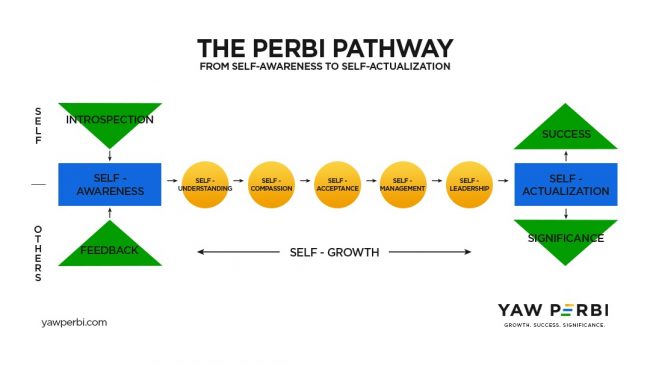
Is ‘Self-Leadership’ Really a Thing?
When the CEO of TNYOU, short for The New YOU, a leading health and wellness movement asked me to speak to a group of their Queens (members) on ‘self leadership’ it felt odd on three levels. I still showed up anyway, grateful for the invite, because Sena told me there was going to be a lot of women there so how could I turn down the invitation? I am very heterosexual!
Firstly, it felt odd because not everyone believes in the concept of ‘self leadership.’ During my graduate studies in leadership I came across leadership authorities in academia like Northouse who believe ‘self leadership’ is an oxymoron because leadership by definition per se is about other people, not one’s person.
The second reason it felt odd was that it seemed to me I was preaching to the choir. These were all women who had taken charge of their lives, self-leadership, to get their health and happiness on track. What more was there to tell them?
My third and final reason was personal: I suspect Sena Yeboah had asked me to speak on self-leadership because not only am I a leadership authority (I’m actually even undergoing doctoral studies in global leadership at the moment) but I’ve also been big on self leadership in my personal life for years and very successful in most areas (discipline of staying in medical school or to author and publish 20 books or choosing to abstain from sex before and outside of marriage or family planning for seven children etc.). The irony is that the one area I have failed miserably at in exhibiting strong self-leadership has been my personal health, particularly since the pandemic. I was very active before Covid-19 hit, sometimes doing nearly 70 flights per year and all but now both the pandemic viral curve and the curve of my abdomen had risen in tandem. What an embarrassment to stand before women who had exhibited self-leadership to look trim and prim!
I’m glad that in the spirit of authentic leadership I confessed my sin and shared my repentance story that over the previous four weeks I had now taken self-leadership regarding my health and had been working with a physical trainer/coach actually recommended to me by Sena since there’s no TNYOUMen, yet.
SO WHAT IS SELF-LEADERSHIP?
As far as I know, Charles Manz was the first to use the term ‘Self-leadership’ way back in 1983 and defined it as “a comprehensive self-influence perspective that concerns leading oneself.” The father of modern management, Peter Drucker, wades in (2010) to say that being a self-leader is to serve as chief, captain, or CEO of one’s own life. Brian Tracy talks about setting goals and taking full responsibility for that goal. The concept of self-leadership, also known as personal mastery, can be found in the writings of philosophers and poets, both Eastern and Western:
“Mastering others is strength. Mastering yourself is true power.” – Lao Tzu (born 571 BC)
“I am the master of my fate, I am the captain of my soul.” – William Ernest Henley (1849–1903)
HOW SELF-LEADERSHIP CAN BE EXPLAINED
How differently would you live your life if you saw yourself as a company and run your life that way—Me Inc.? What are some of the things your company/organizational leaders do to make it successful? A leader is a response-able PERSON who serves and influences PEOPLE to achieve a shared, noble PURPOSE. Person-People-Purpose. Because of middle P, there is a school of thought that there is nothing like self-leadership, an oxymoron, but I beg to differ: If leadership is about responsibility, serving and influencing PEOPLE, then how about starting with the FIRST PERSON, which is yourself/myself?
You should know by now that the hardest person to lead is yourself/myself! Self-leadership then is being response-able, serving and influencing oneself (one’s PERSON) to achieve a noble purpose. This purpose could be an overall life purpose or in a specific area of your life: professional, financial, health/wellness, intellectual/academic, social/relationships, spiritual. Self-leadership is to:
*Be response-able for your life. Take charge/you are in-charge. I cannot keep letting my body do whatever it wants—from my mouth to the rod in between my legs.
*Influence yourself. Influence your thinking by what you choose to read or watch, including on social media. Recently I decided to influence myself towards finishing up a book and sending it off to the publishers by promising myself my favourite Chinese food at my favourite Chinese restaurant in Accra on the day I meet that goal!
*Service yourself. Everyone needs a daily growth time; everyone, everyday. Serving yourself may sound selfish but do not confuse self-care with selfish. Even to obey the great commandant to “love your neighbor as yourself,” you can only love a neighbour to the extent that you love yourself. A classic illustration of this truism might be how on an airline the safety instruction is that in the event of a loss in cabin pressure, when the oxygen masks drop down put one on your own face first before attempting to help any others. It might seem very noble to try and save that little child next to you or the old lady already collapsing across the aisle but without taking care of you first, we might end up with two casualties instead of one: you the attempted helper and the one you were attempting to save.
TEAMS, DNA & EVERYTHING LEADERSHIP
Take a good look at every responsibility of company leadership and find an application or parallel with your own life. One of your first acts of leadership is to recruit your leadership team. Gather the right community of people around you. Even better still have TEAMS—Together Everyone Achieves Most Success. You need mentors above (coaches, teachers, counsellors, spiritual directors etc.), mates at par and mentees who look up to you to form a stable tripod. One of my friends who works with a huge European bank has actually set up a personal board of directors he meets with quarterly–and it’s working wonders for him as we meet with him quarterly (I’m on this board). At least have an accountability partner of Me Inc.
As an executive coach, I still haven’t gotten over the shock every time I meet with a top leader of a company with a compelling mission statement yet this leader hasn’t clearly spelt out and written down their own vision, mission and values! Come on! Take self-leadership now–spend some quality time (even go on a retreat) to determine your life’s vision, mission, values and some goals and strategies towards that end. That is leadership!
SELF-LEADERSHIP NOT THE SAME AS SELF-MANAGEMENT
Leadership and management aren’t one and the same. It stands to reason then that self-leadership should be distinguished from self-management (as seen in the Perbi Pathway from Self-Awareness to Self-Actualization above). While all the differences isn’t the focus of this article, suffice it to say that self-management is doing the right things for your flourishing while self-leadership is determining what the right things are in the first place. The difference between leadership and management is starkest when once needs to make a major life change. Self-leadership is able to chart and change course; self-management is able to stay the course (consistency).
Self-management would be the planning, budgeting, organizing and staffing, monitoring results, coordination… everything systems and processes to create a stable, productive environment with consistent life results. Self-leadership, on the other hand, would be building a strong personal foundation, defining DNA (vision, mission, values), mapping strategy, inspiring commitment, equipping others for the journey, leading the way… everything that creates constructive change for definitive and (often) different results.
IT IS A THING!
Self-leadership is a thing and we had better get on with it. Be response-able for you, influence and serve yourself towards personal success and societal significance. There is a company called Me Inc. [replace ‘me’ with your name, if you like]. How’s your company doing? How is your brand? For me, at the moment, it’s taking charge of my weight and wellness that will do it. What is it for you?
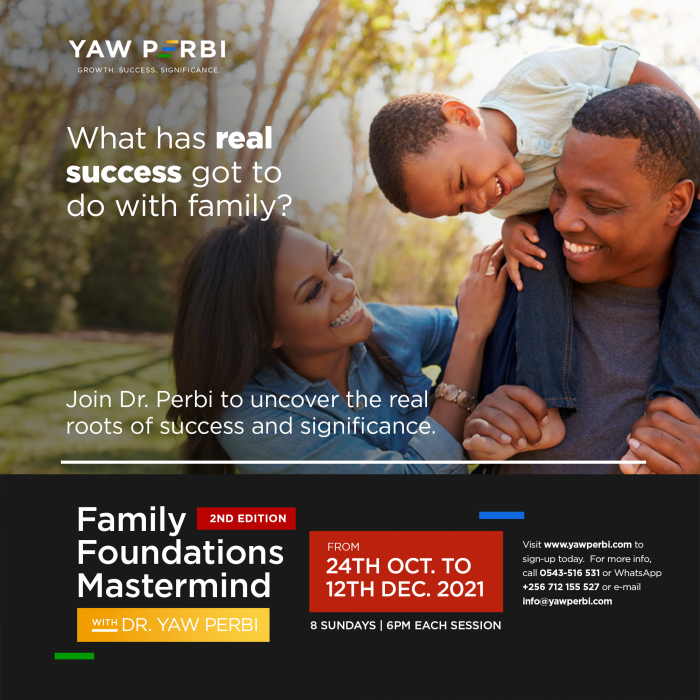
Family Foundations and Success: Will Your Anchor Hold?
We live in perilous times. Don’t you sometimes feel like the world is spinning out of control ? One of the most important things we must cherish and hold on to is family. Every single one of us has a family–no matter how (dys)functional and emotionally or geographically removed. The family is the fundamental unit of human existence. Nothing good happens on Earth if it is broken or destroyed. A society is only as good as the families that constitute it.
It is not only the concept of family that is important but also the actual living out of what family should be. Humans are described as social creatures. We make friends, live in communities, and connect with strangers based on common elements. Social media has recently emerged as a new way for people to connect with childhood peers, friends of friends, and even strangers. Nothing is more central to social life than the concept of family. Our families represent our earliest and, often, most enduring relationships.
Earlier this year, a Family Foundations Mastermind was held, with a sizeable number of couples (and some individuals) participating. All present could see that there are important things everyone should know, be, and do about the family yet no one had done! How can we expect family to be strong and stable if we ignore the fundamental roles of human existence? As a result, a popular request has been made for it to be repeated, even though we had planned this quarter to run a Financial Whizzdom Mastermind, which many were anticipating. We apologize for any inconvenience, but signing up for the upcoming Family Foundations Mastermind would never be a mistake.
With what is going on around us in this LGBTQI+ era, there is an urgent need to apply ancient wisdom and put current family systems theories to the test. The abiding questions in the 19th century hymn Priscilla Owens come to mind:
“Will your anchor hold in the storms of life, when the clouds unfold their wings of strife?When the strong tides lift, and the cables strain, will your anchor drift, or firm remain?”
We encourage everyone to participate in this mastermind as it will be both enjoyable and educational. We will explore:
Why a systematic study of family itself is important
The prime place of family (get ready for paradigm shifts!)
Ancient family wisdom (we’ll apply these)
Current family systems theories (we’ll test some)
Basic tools for emotional connection
Essential communication tools
The forgiveness exercise
Unique emotional needs and how to fulfill them
Mapping out your family genogram
Drawing up a family mission statement
Prioritization: Recognizing the place of work, family, friends, church/community, and other responsibilities that require your attention.
The idea of the integrated life over the notion of balance
And much more!
Note that this is not a masterclass but a mastermind. Inasmuch as there will be some core teaching, more central will be the concepts and tools that are put on the table for everyone to contribute their perspectives and experiences and practically learn together things together that no one could have taught us. Dr. Yaw Perbi is a guide by the side in masterminds rather than a sage on the stage, typical of a masterclass.
WHAT’S SUCCESS GOT TO DO WITH FAMILY?
Everything. As John C. Maxwell poignantly puts it, success is when the people who know you the best (family) love and respect you the most. Join this journey of growth to discover the real roots of success and significance. Family is essential. Whatever we see in society has a direct correlation with family. The family is the fundamental unit of society and humanity. We can discuss all seven sectors of life or spheres of influence, but only family actually produces human beings. Come learn how to be a better family member and how to be/do family better.
We are excited to have you. Register via this link as soon as possible. First come, first guaranteed.

4 F’s for Finding the Right Life Partner
A special shout out to Naa Anyele Perbi, my wife, economist-entrepreneur and CEO of Perbi Cubs. It’s my wife’s birthday (October 3), my wife of 15 years and counting, and as I celebrate her it seems to me that the rest of the world could benefit from 4 F’s that are critical in building a lasting marital relationship a.k.a. life partnership. Marriage is tough in and of itself and so starting with the ‘wrong’ partner is literally starting on the wrong foot. Anyele and I have been asked “how do I know for sure this is the right life partner for me?” so many times that we’ve distilled the answer down to a simple 4 F criteria. Of course, you could have 100 characteristics of the (wo)man of your dreams–why not?–but if you get these four wrong, forget the other 96!
Now, this is not just for young(er) people. Increasingly many people are getting married later in life but not just that, stuff happens. There are those who marriages end sooner than they had hoped and choose to remarry–and want to have a partner that will last this time. Here are our four: faith, future, friendship and feelings.
(1) FAITH
Faith is number one because it drives everything else. I’ll explain: people do not realize that our entire existence and behaviours our shaped, driven and undergirded by values, which in turn are determined by our beliefs (or as some call them, ‘faith assumptions’) which at the very core come from our worldview!
There is a lot of talk about values-based this and values-based that but values are only fruits of the tree; the roots are fundamental beliefs in the fertile soils of worldviews. So what kind of faith do you subscribe to, or no faith? I know people try to cross faiths, like Christian and Muslim marriages, but we really believe it is important to share a common faith because then you have a common worldview, common belief system, and common values which should lead to common behaviours to do life together that lasts, with unnecessary tensions and fight.
The apostle Paul, who incidentally never got married, waxes lyrical about this to the Christ followers in the ancient Greecian city of Corinth. He pulls no punches as he gives it to them straight up: “Do not be unequally yoked with unbelievers.” For Christians who are true disciples of Christ, the reasons and reasoning I’ve provided above which must’ve informed this command, in additional to spiritual reasons he gives in the text, may be useful to know but obedience nevertheless is the highest value in the kingdom of God. It’s also known as love for God.
(2) FUTURE
You may be two people of the same faith (so values, beliefs and worldview are in sync) but if you are going in two different directions in life, it’s not going to work. First it’s a tension and soon it’s a tear. And this has nothing to do with someone being a ‘bad person’ or the other having ‘no love’ but just because you have two different life purposes that aren’t complimentary let alone synergestic. By future we are talking about purpose compatibility. Two people may have common faith but if they are traveling in two different directions because they were made for two different destinations and destinies, the marriage partnership won’t work. I like the way a friend put it: “we are good; but we’re just not good together.”
Everyone has a specific God-given purpose that must not only be discovered but developed and fully deployed if we are to feel fulfilled. It doesn’t mean both must be doing the same sort of work or in the same field even (all they better if they are). It just means they have the passion and compassion (and perhaps even talents) to contribute to the purpose. Being fulfilled can be described as getting oxygen, and you know how any human being will instinctively fight for air if they are being choked. A life partnership will never work even if you are two people of the same faith yet moving in opposite directions, or towards different destinations and destinies.
It is critical that you discuss the future and truly understand what you are getting involved in during courtship. During courtship, the lips are for talking primarily, not kissing. You can never suck information from the mind of another no matter how much you French kiss a loved one! Decide to go into details about where you’re headed and how you envisage life in the coming years. It is not for nothing the good book inquires, “Can two people walk together unless they agree?”
(3) FRIENDSHIP
Friendship is the cornerstone of a lasting relationship, and a good friendship is intentionally formed over time. One of life’s greatest pleasures is friendship. Friendship is wonderful because it is one of the few relationships in life that fosters equality and mutuality. Almost every relationship in the world has a power differential, someone one higher than the other; not so with friendship.
If the creation account is true, then man and woman were made for each other for companionship (friendship) even before parenting for their life’s work (‘future’ above) or procreation. The other thing is that emotions come and go, but friendship endures and transcends the passage of time. Affect(ions) alone cannot always sustain a marriage. Friendship with all it entails is a truly priceless relationship. Life can become monotonous if we do not have some true friends to share it with.
It’s so cute to find an elderly couple who are truly friendships–the body language, the mannerisms. I’ve met many people, especially young ladies, who somehow seem to believe that they will never be able to marry their friends. Au contraire! Marrying your friend is the best decision one could ever make!
(4) FEELINGS
Finally, feelings are the icing on the cake of a life partnership that literally lasts a lifetime. Emotions are extremely important and should never be overlooked. They are powerful. They are called e-motions for a reason. They move us. There is a need to feel and this is a requirement for you and me to be exceptionally attracted to our partners. There must be a special thing that draws you to the individual and creates a natural flow between you two. Call it ‘chemistry,’ if you will, or that the person lights your fire. There is a need for connection and a spark between the individuals. It is key because you’ll be waking up by the side this person almost every morning for the rest of your life–you had better get some kick out of that!
There tends to be two extremes when it comes to the role of feelings in choosing a life partner. There’s the feelings don’t matter camp which gets it wrong (of course they do!) as well as the feelings first (or even feelings only) base as well. We absolutely need the feelings to make any life partnership last, but I won’t make them first or foremost. Take a look at Hollywood: more than half of the hunk-ness, über beauty, sexiness and extreme marriage proposals (on helicopters and such) result in divorces within months. Months!
Feelings are important but there aren’t everything. I remember learning 25 years ago when I was a World Vision Youth Ambassador that generally people in the West marry the one they love (have feelings for) while those in the Eastern hemisphere love the one they marry. Even arranged marriages can work if they get the first three F’s right. The fourth ‘F’ can eventually come along. In fact, many of them outlast the so-called “love marriages’ which largely focus on just the fourth ‘F.’
FINALLY…
Many people I know have a long list of life partner criteria. Every one of those lists can be divided into two: essentials and desirables; or non-negotiable and negotiable. You can add a whole list of both categories to Faith, Future, Friendship, and Feelings but these four are non-negotiables. You can have an expanded list of 100 criteria but you cannot do without these four–not if you’re serious about a life partner for a lifetime. Ascertain that these 4F’s are in place for a future with your partner that has a lifelong glow and not just a shooting star. The quality of the information you have directly impacts the quality of the decisions you make. You are in charge, therefore, make the best decision. See you at the summit!
Please share your thoughts and experiences too!

Relax. Religion isn’t going anywhere.

Although Pew’s projection of the Christian numbers is disputed by many, like the Center for the Study of Global Christianity (that it should be much higher)), the point being made in this article is still clear: the majority of the world has and will continue to be religious.
I’m very excited to begin my doctorate in global leadership this week. Having been a student of leadership for the last 25 years plus and acquired a Master’s degree in it a few years ago, I’ve felt it’s time to do the whole nine yards, not so much for the title (after all I’m already a doctor) but to go deeper and be even better-seasoned in my darling subject (or is it object?).
In going this doctorate route, I opted for a seminary environment because faith matters immensely to me, and indeed to the majority people in the world. The increased secularization of a formerly mainly ‘Christian’ Europe and certain sections of American society seems like an overwhelming flood to many only because it is a sharp deviation from the not-so-distant past when there was hardly any division between church and state; but also because the West disproportionately fills the media space. Only last week the German national broadcaster shared that a recent poll showed “most Germans find religion unimportant.” Yet the fact remains that the majority of the world has and practices a faith of sorts. In 2025, 90% of the world will be religious, my friends who run Operation World say; and by 2050, at least 87% of the world will still be religious, according to Pew Research.
The mid-twentieth-century secularization theory—that an increase in modernity means a decrease in religion— has been largely debunked by the likes of Berger (2014). According to Todd Johnson, who I just exchanged emails with, an astute associate professor of Global Christianity and Co-Director of the Center for the Study of Global Christianity at Gordon-Conwell Theological Seminary, “Despite increased modernity the world has in fact become more religious; 80.8% of the global population self-identified with a religion in 1970, rising to 88.1% in 2010 and with a projected increase to 91.5% by 2050,” higher than Pew’s projected 87% cited in the previous paragraph! Even the ‘unaffiliated’ doesn’t mean they aren’t religious; it often means they choose not to be identified with any ‘institutionalized’ religion. Just as humans have a physical, social and mental components that cannot be denied, so is there a spiritual capacity that we cannot run away from. French mathematician and philosopher Blaise Pascal put it succinctly, “There is a God-shaped vacuum in the heart of each man which cannot be satisfied by any created thing but only by God the Creator,” and in his experience and exposure, “by God the creator made know through Jesus Christ.”
By the way, I use the world ‘religion’ generally (and maybe even generously) because as an insider of the Christian faith I wouldn’t call Christianity a religion per se. Religion connotes man in search of God while in the Christian faith it is actually God in search of man. Not only that, religion tends to paint a picture of rigorous rules and rituals while true Christianity is more of a relationship with the Divine than a set of rituals or rules per se. That being said, for the purpose of this article faith, spirituality, divine relationship and religion are all being treated as ‘religion.’
FAITH AND WORK, FAITH @ WORK
Without God, and my faith in Him, I do not have a reason for being, a raison d’être. Neither do I have sustainable passion for my doings because all of it feels like, in the words of the wisest and wealthiest monarch ever, “vanity of vanity, it’s all vanity.” I have observed with grave concern the increasing divorce of faith from the work space, treating it like the plague or some highly contagious disease. Even on work-centric social media like LinkedIn, one cannot help but get the feeling that the mention of God in posts ‘spoils the atmosphere,’ which is riddled with human achievements, of brain and brawn (mainly the former), simply singing of how great we are.
But statistically, 90% and over of the people on LinkedIn are religious. There are myriads like me who know we wouldn’t be as excellent professionally but for our faith. Meanwhile, all who have an active religious affiliation yet act at work as if they have no faith are walking on the dangerous ground of inauthenticity. It is not integrous to want to, or have to, hide such an important part of one’s life as spirituality or faith in a space that easily takes up a third to half of our waking hours: work!
This week, a Muslim mate of mine from medical school, now a neurosurgeon, posted on our year group’s WhatsApp platform a screenshot of a heartfelt social media post someone had made about Dr. Aba Folson, one of our Christian colleagues who is now a cardiologist. This person who made the post, a nurse, starts by saying, “I have been blessed in my journey in the Nursing/Healthcare space to be working with amazing, highly religious health workers. One of such awesome ladies is Dr Aba Folson. She is a Cardiologist.”
She goes on to describe “her humility, assertiveness, excellence and brilliance” and how Aba has “broken protocols to help save my very critically ill patients.” The protocols she speaks of, I believe, were put in place to save patients in the first place, but there are situations where one has to do the unusual and even unconventional at great risk, which separates humans from machines and even artificial intelligence. The wisdom and courage to make such calls, Dr. Folson will say, I know for sure, comes from above. The writer of the text seems to be enamoured by the fact that Aba is “an astute Christian and sings in the choir.”
ALL WE NEED IS RESPECT
I still remember zooming down the corridor between the ER and the blood bank to fetch blood for a critically ill child. This was during my days as a medical officer at the 37 Military Hospital in Accra. We usually had junior staff who would do that but no, this young doctor run in his white coat. The child’s mother gathered the energy to attempt to run alongside me. Barely catching up and hardly catching her breath she managed to say these words, which I shall never forget, “Doctor, doctor I can tell you are a Christian.” She must’ve known that for a Christ-follower the Pauline admonition about work is clear and strong: “Whatever you do, work at it with all your heart, as working for the Lord, not for human masters.”
What is needed, indeed all that is needed, is for respectful co-existence in a pluralistic workplace, which is a microcosm of a really pluralistic world. The fight for diversity and inclusion in the workplace must not, and indeed cannot, be limited to ethnicity, age, gender, (dis)ability and such alone but faith as well. The majority of us wouldn’t be present at work with purpose and perform with passion and excellence without it, and none of us will be authentic in the workplace pretending we didn’t have it.
Faith works. Let your religion work at work—faith, love and hope at work. Your faith should make you a better professional; not worse. If your faith doesn’t make you better at work—which is all about service to humankind made in the image and likeness of God—it’s not worth following. Change it. Let’s see faith at work working, doing good works that bring God glory and bring about the good society—that’s the way it ought to be.
Post Script.
Right after I posted this blog, I came across a photo and headline on LinkedIn that said, “South African doctor: Professor “Mashudu Tshifularo” just became the first surgeon on earth to successfully perform surgery [with 3D technology] to cure deafness. He is also a pastor.” Ahem. Point nailed!

